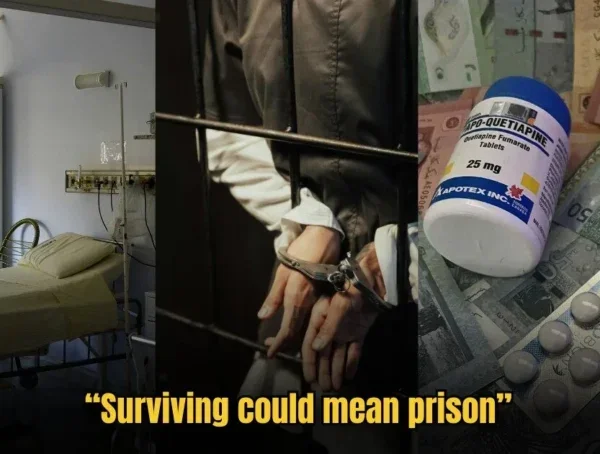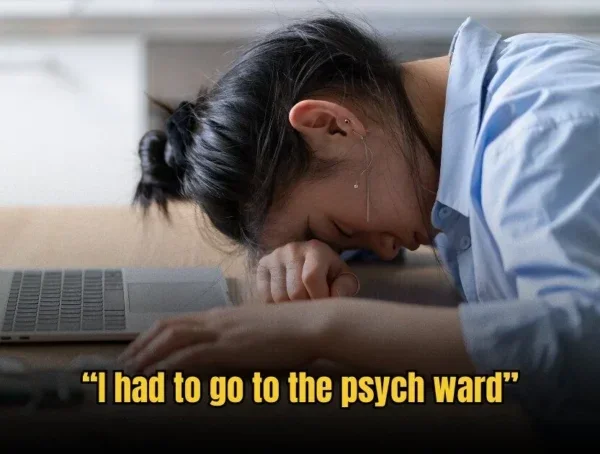Disclaimer: In Real Life is a platform for everyday people to share their experiences and voices. All articles are personal stories and do not necessarily echo In Real Life’s sentiments.
The phone rang. It was 7AM, and the screen said “Mama.”
I answered the phone, “Hi, Ma.”
“Hi, is this … Abdul?” My heart sank.
“Yes, it’s me, Ma. I’m your son.”
“I have a big problem,” my mum said haltingly.
“What’s the problem?”
“My appointment with the hair lady. How do I get there?”
“Ma, today is Monday. Your appointment with Syazwani is Friday at 10AM. Dina is taking you there.”
Dina was my mum’s caregiver.
“Are you sure it’s Monday?”
“Mama,” I said gently, “Look at the big clock in the kitchen. What day does it say it is?”
Last month, we had bought my mum a big digital clock that had the year, month, day, and time on it. Yet here she was, confused.
I waited for about ten seconds. Then my mum said, “Oh. Oh. I see!” Then she laughed at her mistake.
At least she kept her sense of humor.
For the last 9 months, my mum’s memory faded each day.
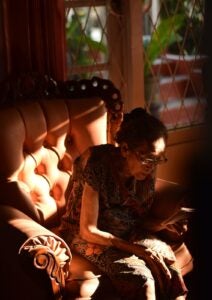
Image via unsplash
My mum, before she was diagnosed, sensed that her memory was slipping, so she compensated by writing information down on scraps of paper.
At first, her memory trick worked. Then, as the disease progressed, writing things down no longer helped.
People with Alzheimer’s try to keep track of the facts, but it gets harder and harder each day.
I remember visiting my mum’s house, and her desk would have all these notes of dates and times for various things. Yet she couldn’t remember when her appointments were.
She would forget events, or have no recollection about her own personal history.
In socially or mentally challenging situations, instead of looking like her usual cheerful self, my mum started to become moody and withdrawn.
At times, she struggled to recall her own address or telephone number. She would need help choosing proper clothing for the season or the occasion.
It seemed like overnight, she went from the early stages of Alzheimer’s to the middle stages.
The scariest part was, my mum became nocturnal and started talking about leaving her home in the middle of the night.
Our house helper Dina was scared. She didn’t know what to do.
We hired an extra one, Faizirah, to cope with the added responsibilities of taking care of my mum.
Some days, my mum remembers the time, but forgets the year
Most Alzheimer’s patients know they’ve lost something – a visit to the neurologist illustrated that my mum was aware of her condition.
“What time is it?”
“It’s 9:30AM,” my mum answered correctly to the neurologist’s question.
“What day is it?”
“Friday.” Correct again. She’s doing well today.
“What city are we in?”
“Petaling Jaya.” Three out of three.
“What state are we in?”
“KL?” Oops.
“What year is it?”
“20…09?” my mum answered. (It was 2014)
My mum had adjusted to her new normal. Some things made sense, and other things she couldn’t reason out.
She knew something was wrong with her. She’d told me as much.
The doctor said, “Do you want to take medicine for your memory? It’s not going to improve your memory, but it will keep it from getting any worse.”
I asked, “What are the side effects?”
“Only nausea and diarrhea,” he replied.
“Doesn’t sound that great,” I said. “Ma, what do you want to do?”
“I don’t want that,” she said. Who could blame her.
We finished the appointment, and made another appointment a few months from now.
Last night my mum called me around 6:45PM.
“I had the most wonderful day,” she said. “I went for a walk!”
“That’s great, Ma!”
That’s all that matters now. At least she had a good day.
When my mother doesn’t recognise me, I try to look on the bright side
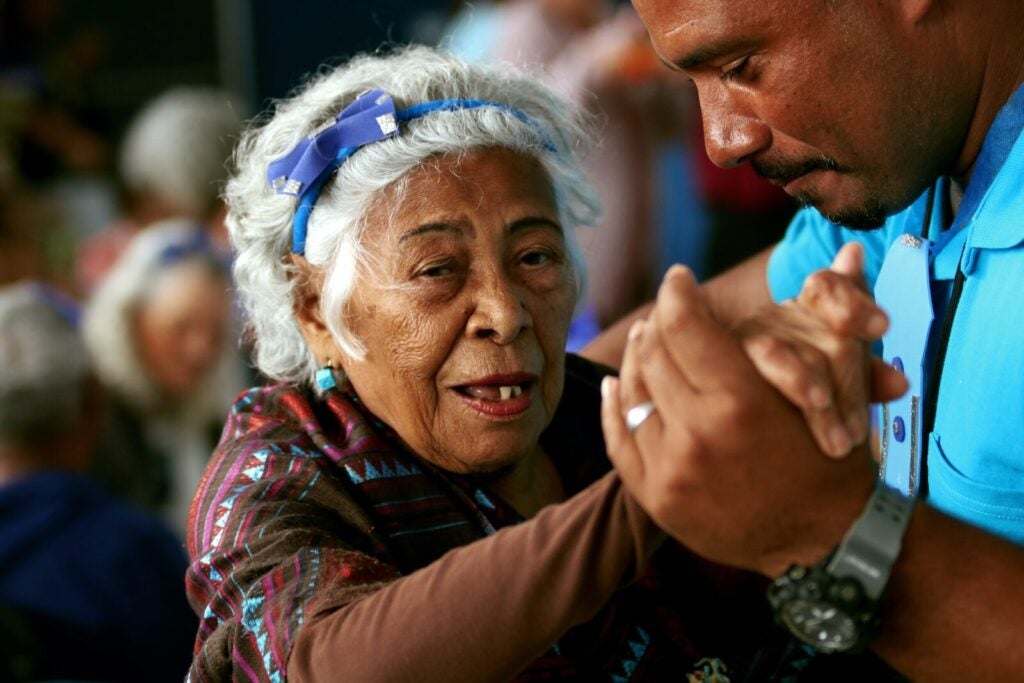
Image via unsplash
One day, my mum went missing for 2 hours. When my father and I found her, she had been arguing with the guard at our neighborhood guardhouse.
According to the guard, she had wandered to a neighbor’s house. After she lingered on the roadside for quite some time, the neighbor noticed and brought her to the guardhouse.
I approached her to take her hand, but she pulled away in suspicion.
“Who are you?”
“Ma? It’s me.”
“I don’t know you. Where is my son? Where is Abdul?”
“I’m Abdul, Ma. I’m your son. Remember?”
She couldn’t recognise me. She turned towards my father, whom she recognised, and asked:
“Where were you? I waited for so long for you to let me in.”
It took us a couple of times to patiently explain that she’d got the wrong house, and we pleaded with her to come back with us.
When she finally recognised me, she came home and immediately went to her room to take a nap.
After that, I would keep photos of us in a folder on my phone and show her when she forgets who I am. As soon as she realizes I’m her son, I feel a deep sense of relief.
When I think about the day where she will no longer recognise me, the thought fills me with pain, and I try not to cry.
I remind myself to look on the bright side: I get to ask her about her own childhood, one she rarely spoke of when she was raising me.
In some ways, I learnt more about my mum now than throughout all my life that she raised me.
The last 6 weeks of my mother’s battle with Alzheimer’s were the toughest
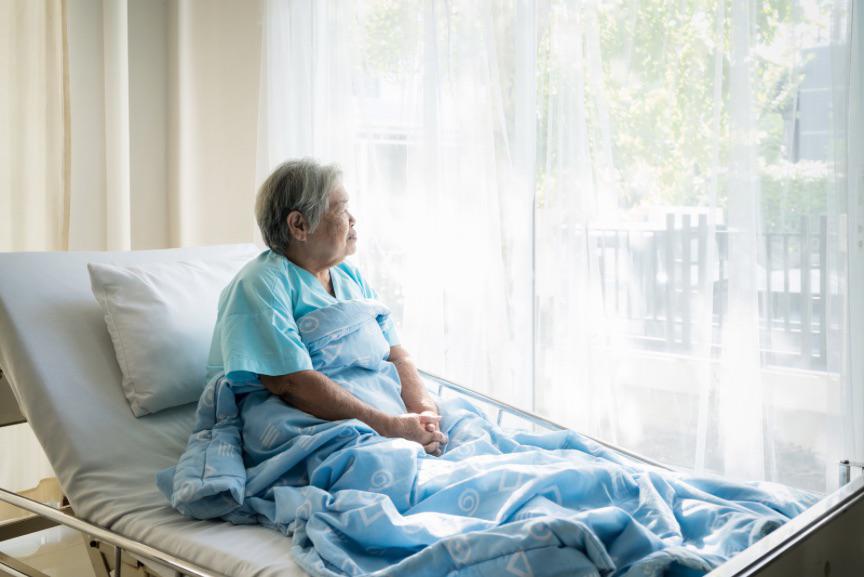
Image via unsplash
On January 29, 2017, my mum passed away peacefully, three and a half years after being diagnosed with Alzheimer’s.
I witnessed all seven stages of Alzheimer’s that she went through, including the final parts of stage seven, where patients lose control over their bodily functions.
The last six weeks were the toughest to watch. She started having significant trouble eating, and was vomiting her food.
We were on the verge of calling 911 and sending her to the hospital, but fortunately, the vomiting stopped.
I realized that night that we needed to get her into home hospice, so I spoke with her doctor, and he approved her acceptance for home hospice care.
This was a huge relief to all of us.
About two weeks later, my mum’s condition worsened considerably. She needed oxygen to be fed directly to her for the last two weeks of her life.
On Monday, the nurse called me to tell me my mum was entering a period called “transition”, which meant that death was coming between “hours to days.”
It was crushing to watch her deteriorate.
However, she wasn’t in any pain. I went to see her on Friday, the day before she passed, and my mum was in a coma-like state, not opening her eyes.
I kissed her, and I told her how much I loved her. I told her that her work was done, and that I was okay, my brother was okay, and my wife and daughter were okay.
“You can go now if you want,” I said.
The next day, Saturday at 2:40 PM, I received a call from my mum’s main caregiver.
“Your mother has taken her last breath,” she informed me.
I felt a combination of relief and sadness.
My mum’s pain was over.
3 important things to know when caring for a loved one with Alzheimer’s Disease

If you are caring for a patient with Alzheimer’s disease, here are some practical solutions to improve their quality of life:
- Create a safe environment
Keep potentially dangerous items, such as knives, matches, cleaning detergent, medicine, locked in a cupboard. Install no-slip rugs and railings on bathroom floors and kitchens.
- Provide simple instructions
Speak clearly and slowly, and give one-step instructions like “Let’s have lunch now, Ma”. Allow simple two-option choices, like “Would you like a hot or cold drink, Ma?”
- Allow them to take their time
Be patient knowing that tasks will take longer than they used to, and put aside more time for it. When getting ready to go out, allow an extra two hours instead of one. Don’t rush them.
Each individual will experience the symptoms differently. Tailor these tips to your parent’s needs. Be flexible in your approach and always be patient with them, and you’ll be able to weather this storm as a family.
For more stories like this, read:
https://inreallife.my/my-mothers-brave-fight-against-a-disease-that-turns-your-body-to-stone/
Do you have an interesting story? Email us at ym.efillaerni@olleh
Subscribe to our Telegram for updates.
More from Real Mental Health
“I Was Scared of Waking Up in Handcuffs,” shares Depressed M’sian on Repealed Law
In 2023, Malaysia repealed Section 309, a colonial-era law that made suicide attempts a crime. The change marked a shift …
‘Everyone Saw A Successful Student While I Was Crumbling,’ Shares 22 Year Old Student
This is a story of a 22 year old woman who shared her story as a Straight A’s student as …
5 Harmful Mental Health Myths Malaysians Still Believe
Let’s break down five of the most common myths Malaysians still believe, and why it’s time to let them go.






